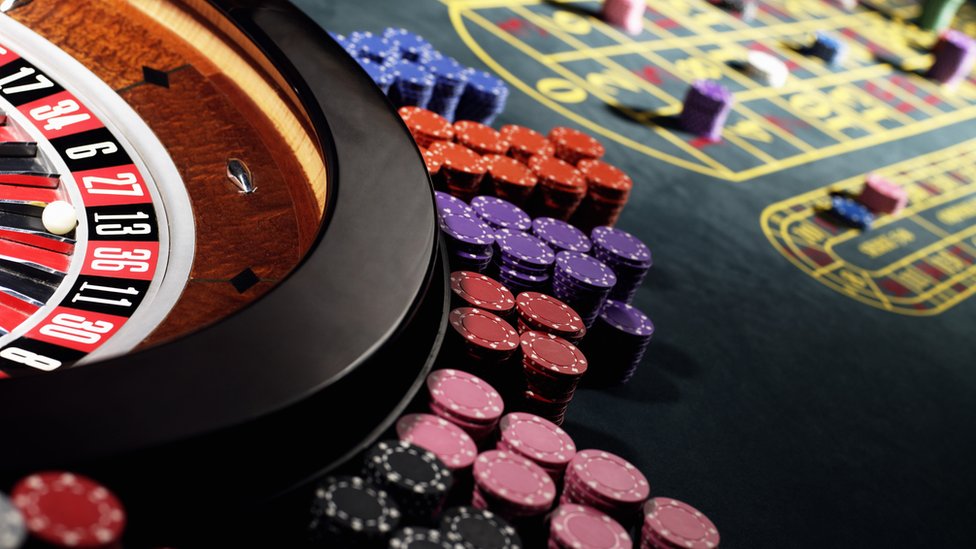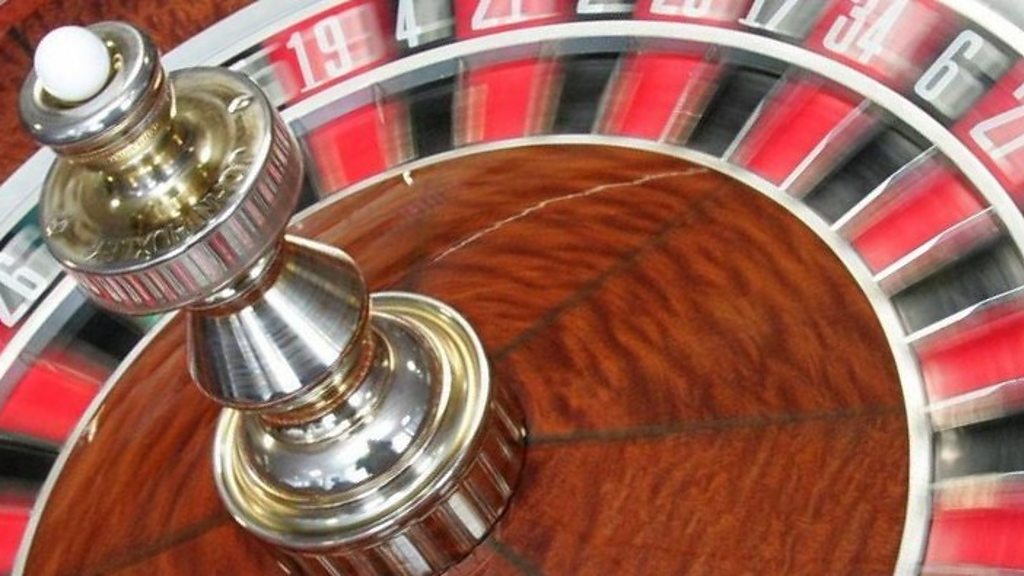Gambling Bbc News
Humans bet for money, whereas rats gamble for food |
Rats are able to play the odds in a 'gambling task' designed by scientists to test the biology of addiction.
Gambling Bbc News Reporter
BBC Radio Jersey The organisation which regulates gambling in Jersey has called on the islands health authorities to do more to help people with gambling problems. In its annual report, the Jersey.
In the journal Neuropsychopharmacology, researchers describe how the rodents developed a 'strategy' in a timed task where they make choices to earn treats.
The rodents avoided high-reward options because these carried high risks of punishment - their sugar pellet supply being cut off for a period.
Until now, big budget video games have most commonly been played by consumers who bought a physical copy of the titles or downloaded them to be run off local storage. But the console-makers. Your #1 source for the latest Gambling News online. Discover the latest stories and headlines - Casino News, Poker News, Sports News.
This decision-making task provides an animal model to study neuropsychiatry.
During the task, which lasted for 30 minutes, rats were given four choices - in the form of holes to investigate.
Nosing each of these holes triggered either the delivery of tasty sugar pellets or a 'punishing time-out period' during which rewards could not be earned.
Gambling Bbc News Headlines
But high-reward holes - those that delivered more pellets at once - also carried the bigger risk of triggering longer periods of punishment.
And rats quickly learned an 'optimal strategy' - earning more pellets over the duration of the task by choosing the holes with smaller gains and smaller penalties.
Weigh the odds
The task is based on a card game used to test human decision-making |
One of the authors of the study, Trevor Robbins from the University of Cambridge, explained that the rat task was based on an existing clinical experiment called the 'Iowa gambling test'.
'This is a game designed to test decision-making in patients who have suffered damage to the frontal lobes of their brains,' he explained.
'This type of injury is unusual - it doesn't really affect intellect, but patients become extremely compulsive, making disastrous decisions that can have serious impacts on their lives.'
In the Iowa gambling test, participants choose cards from four decks. With each card they draw, they either win or lose money, and the object of the game is to win as much as possible.
Some of the decks are associated with small gains and small losses, and will earn a player more money over time.
Certain 'bad decks' carry higher rewards, but also incur larger penalties, and will lose money over time.
Like the rat in its quest for sugary rewards, if the player adopts an 'optimal strategy', they will make a profit.
'But patients with frontal lobe damage just don't learn from their experiences', said Professor Robbins. They continue to choose from the 'bad decks'.
'Truly translational'
To further test their model, the team looked at how the rats' performance was affected by drugs that altered levels of two neurotransmitters, dopamine and serotonin.
These are signalling chemicals in the brain that are both thought to play an important role in addiction.
Researchers hope to develop treatments for 'pathological gambling' |
The rats were given a drug that reduced the amount of serotonin circulating in their brains. This impaired their ability to make good decisions, and to successfully play the odds.
'Not only have we seen that our rats will gamble, but we've also been able to modulate that behaviour,' lead author Catharine Winstanley from the University of British Columbia told BBC News.
'This coincides with data we've seen from pathological gamblers, who have been shown to have lower levels of serotonin in their brains,' she added.
'We also found that we could make our rats better gamblers by giving them a dopamine receptor antagonist - a drug that reduces the effects of the neurotransmitter dopamine.'
This also ties in neatly with clinical findings in humans. 'Treatments for Parkinson's disease [which increase dopamine to aid movement] have been seen to induce pathological gambling,' said Dr Winstanley.
'The hope is that this will stimulate interest in studying gambling.'
Marc Potenza, a psychiatrist from Yale University who specialises in addiction and problem gambling, described the new test as a 'significant step forward' that could eventually lead to new therapies to treat gambling behaviour.
'This is truly translational. It's a rat model that is mimicking human behaviour,' said Professor Potenza.


'There are currently no approved treatments for pathological gambling or any of the other formal impulse control disorders. Having good animal models is vital in their development.'
Print Sponsor
 Online gambling is like having a casino in your own home, with roulette, poker, blackjack, all available 24 hours a day.
Online gambling is like having a casino in your own home, with roulette, poker, blackjack, all available 24 hours a day. As an industry, it is booming, with tens of millions of pounds bet online in the UK everyday.
But there are fears that the ease of playing will mean people run up debts they cannot afford to pay back.
John O'Reilly, managing director of e-gaming at Ladbrokes, appreciates the scale of the industry.
'In the last five to six years internet gambling has really mushroomed from nothing,' he says.
'In poker, we're turning over £10m in pots every day. That's money that customers are staking one against the other. It's a significant business.'
Fun and games
Rachel Stockton is the kind of customer who is being attracted to online casinos for the first time.
The young and down-to-earth office manager from Luton plays most days, but keeps a close eye on her spending. She never risks more than a few pounds at a time.
'It's just a bit of fun,' she says. For her, the appeal lies in playing anonymously.
You don't have to physically walk anywhere. You don't have to take your purse out of your handbag or your wallet out of your back pocket |
And she insists that she would never let her playing get out of control.
'If it's not fun any more I won't play,' she says.

But not everyone has such a positive experience.
Another woman, who did not want to be named, told the BBC that she had lost nearly £45,000 on online poker in just four weeks.
She had sold her flat to raise capital for a new business. While the money was sitting in her account, she became addicted to online poker.

'There's no reality check,' she warns, comparing the ease of gambling in online casinos to their real-world counterparts.
'You don't have to physically walk anywhere. You don't have to take your purse out of your handbag or your wallet out of your back pocket.
'You just press a few buttons and that's it.'
'Hidden addiction'
For her, the results have been disastrous. She lost the chance to start her new business, has suffered from depression and her partner walked out.
'If somebody had said to me, two years ago, that this would happen, I would have laughed in their face,' she says.
'But it's just not real, it's like playing a GameBoy or a PlayStation. It's just like a video game.'
People who deal with habitual gamblers believe that the potential scale of problems caused by online gaming is mind-boggling.
'Gambling's a hidden addiction, but we're looking at the hidden end of a hidden addiction,' says Faith Freestone from the Gordon House Association, a charity which runs residential rehabilitation courses for problem gamblers.
'At the moment we really don't know how many people are experiencing problems because we can't find them. They're in their own homes. And they're reluctant to come forward for treatment through the normal channels.'
She draws a parallel with alcoholism. 'The minute alcohol got into supermarkets and was consumed in the home, far more women and young people started to have problems.
'If that trend's the same, we're potentially looking at a new breed of gambler who is going to need a new kind of treatment.'